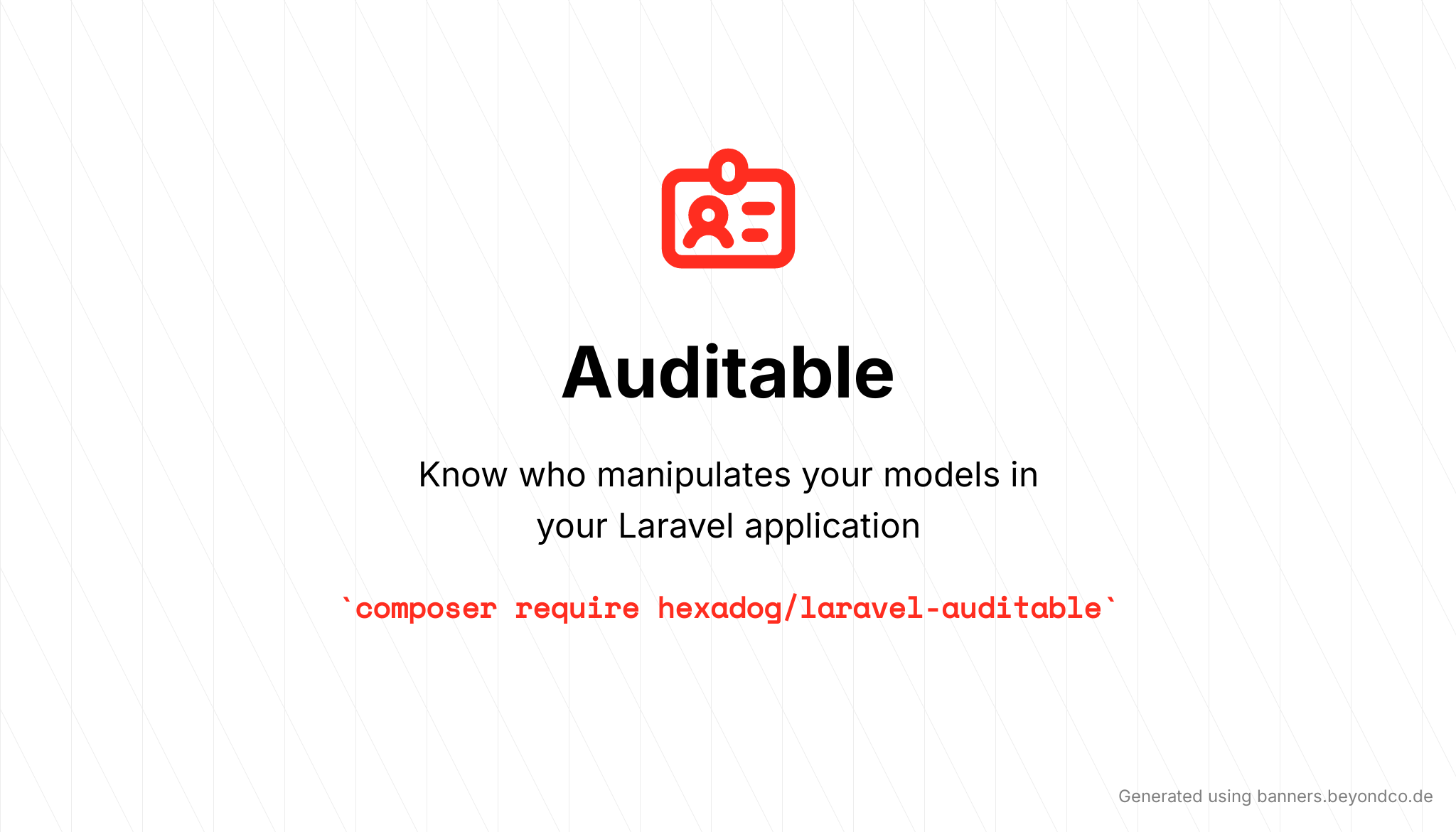hexadog/laravel-auditable helps you to automatically register the user making action on your models.
This package requires PHP 7.3 and Laravel 7.0 or higher.
To get started, install Auditable using Composer:
composer require hexadog/laravel-auditableThe package will automatically register its service provider.
Use the new auditable macro into your migrations.
use Illuminate\Database\Schema\Blueprint;
use Illuminate\Support\Facades\Schema;
Schema::table('posts', function (Blueprint $table) {
$table->auditable();
});
Schema::table('posts', function (Blueprint $table) {
$table->dropAuditable();
});It will add the following columns:
- created_at
- created_by
- updated_at
- updated_by
- deleted_at
- deleted_by
Notice: You don't have to use timestamps() nor sofDeletes() macros. Auditable macro will integrate them for you.
If you altered you DB and want to drop auditable columns you can use the macro $table->dropAuditable();
Once database has been migrated you can use the Auditable trait into your model.
use Hexadog\Auditable\Models\Traits\Auditable;
class Post extends Models
{
use Auditable;
// ...
}This way the id of the user responsible of the action (creation, update, soft deletion) is automatically registered into your model in the associated column each time the data is touched. You don't have to do anything.
You can retreive the user respoinsible of the last action (create, update, delete) by calling one of the helper methods provided by the trait.
To determine the user responsible of the model creation you may use the created_by attribute to get the id or the createdBy relation to get the target model:
// Get user responsible of the creation of the post
$post->createdBy;
// Get the creation date
$post->created_at;To determine the user responsible of the last model update you may use the updated_by attribute to get the id or the updatedBy relation to get the target model:
// Get user responsible of the last update of the post
$post->updatedBy;
// Get the last update date
$post->updated_at;To determine the user responsible of the model deletion (only if the model uses SoftDeletes trait) you may use the deleted_by attribute to get the id or the deletedBy relation to get the target model:
// Get user responsible of the post deletion (ONLY if soft deletes are used)
$post->deletedBy;
// Get the soft deletion date
$post->deleted_at;- Logo made by BeyondCode
Laravel Auditable is open-sourced software licensed under the MIT license.
